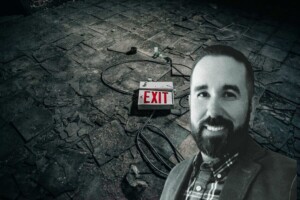
Apologist David Woods Confesses To Sex with 13 Year Old Prior to His Conversion: I did not care’
Acts 17 Apologetics Ministry founder David Wood has elaborated on his confession of statutorily raping a 13- and 15-year-old girl prior to his conversion, readily admitting he did bad things prior to his conversion while also using criticism of his actions by Muslim apologists as a weapon against them. Wood,49,




